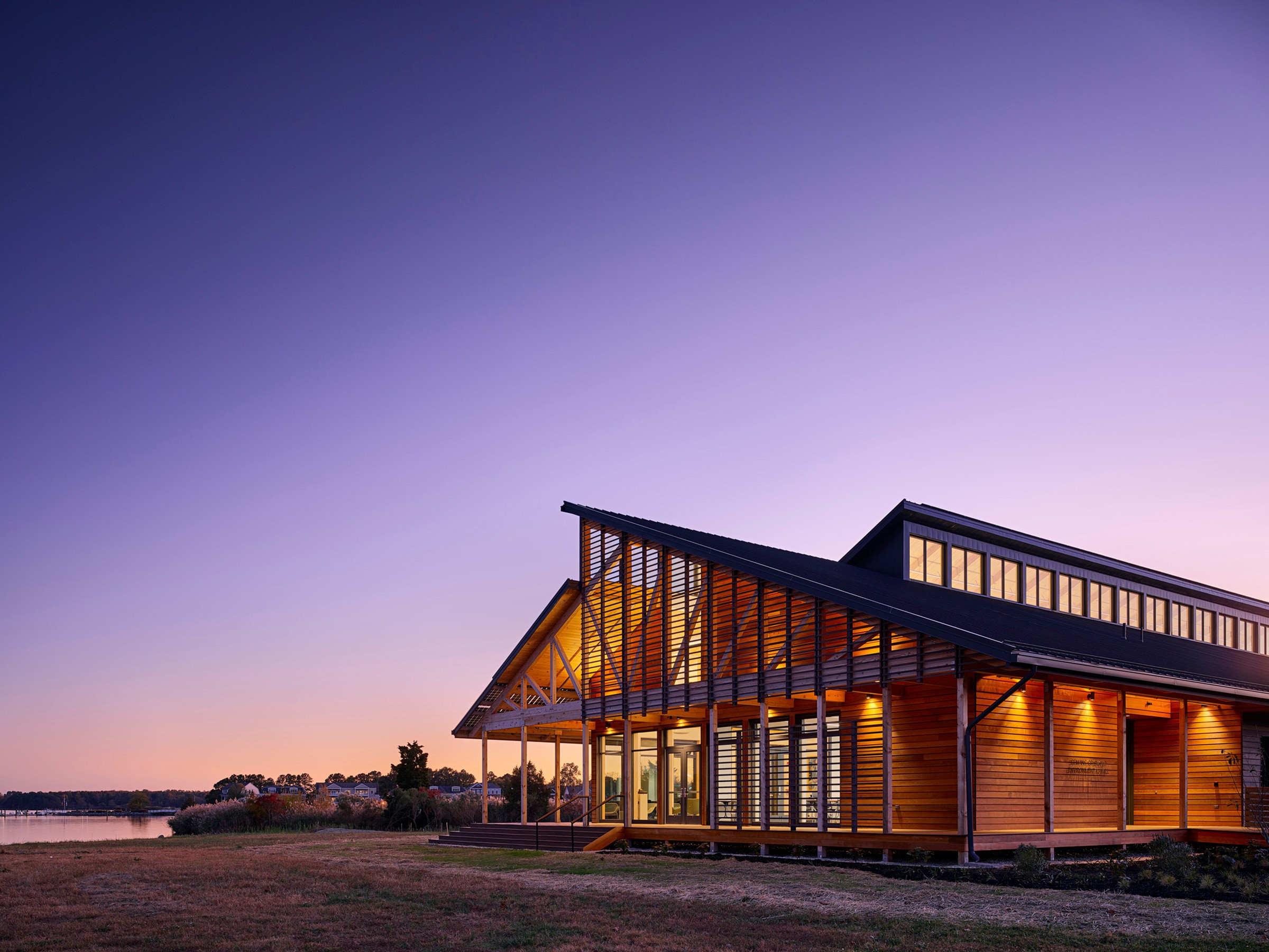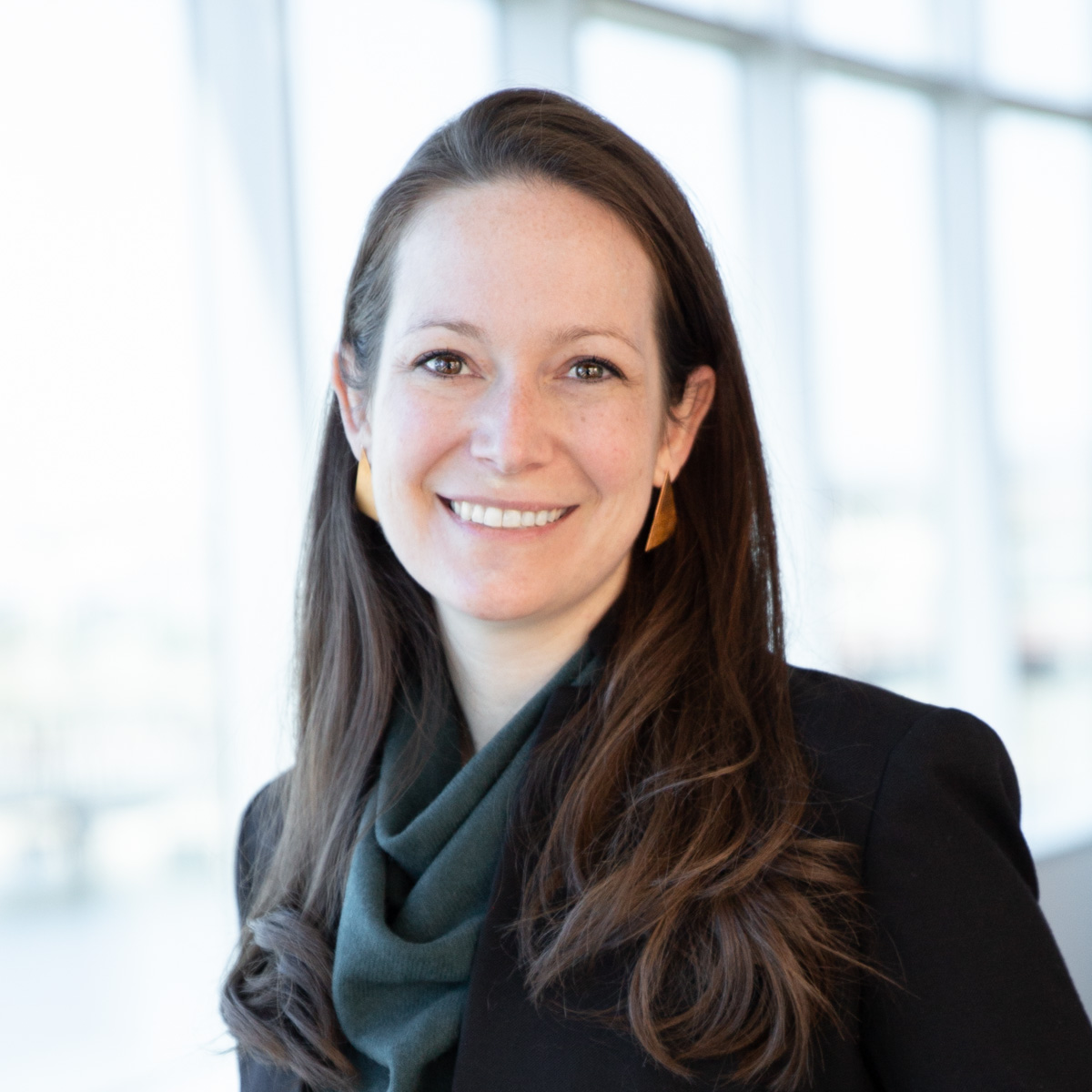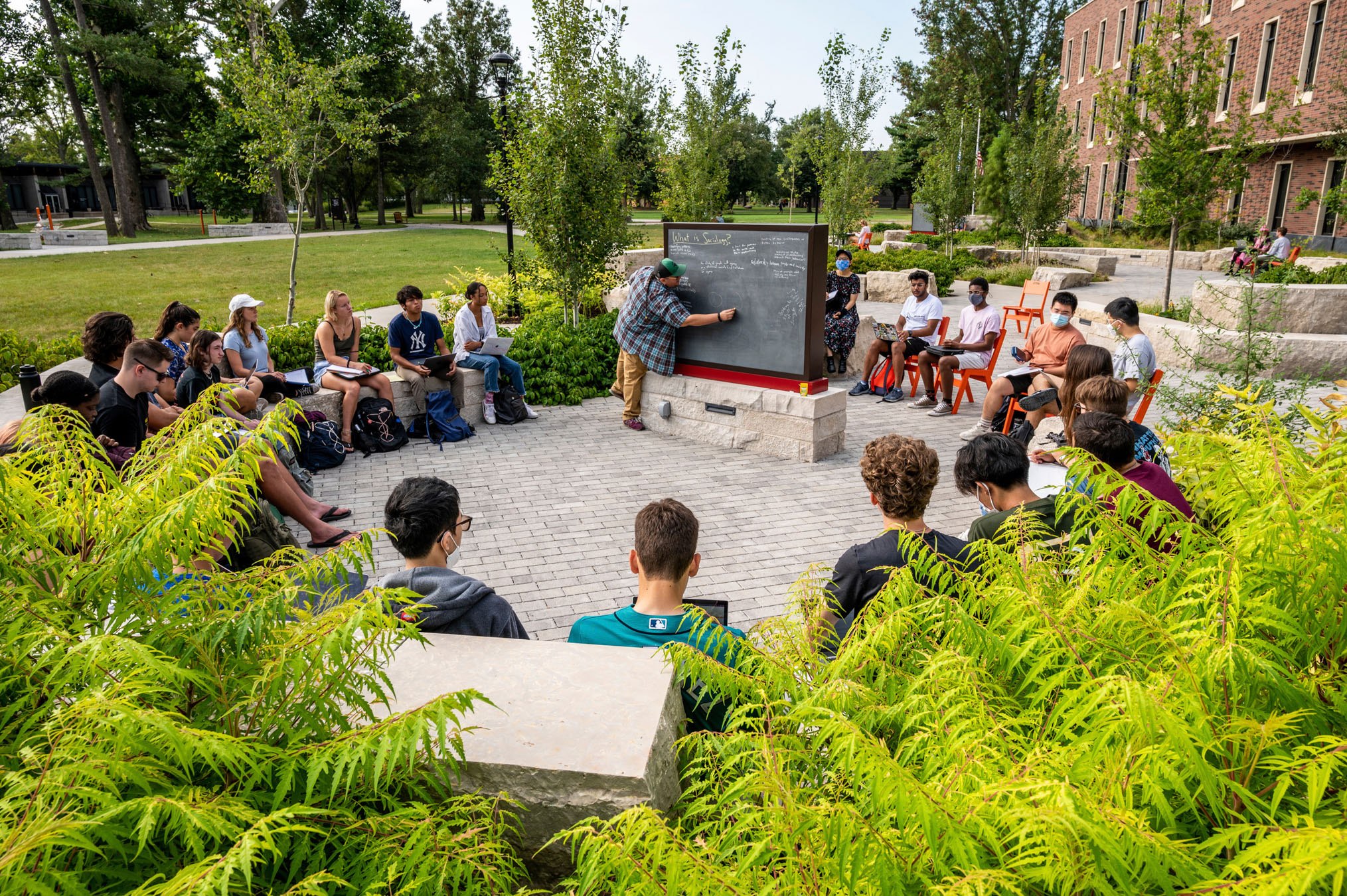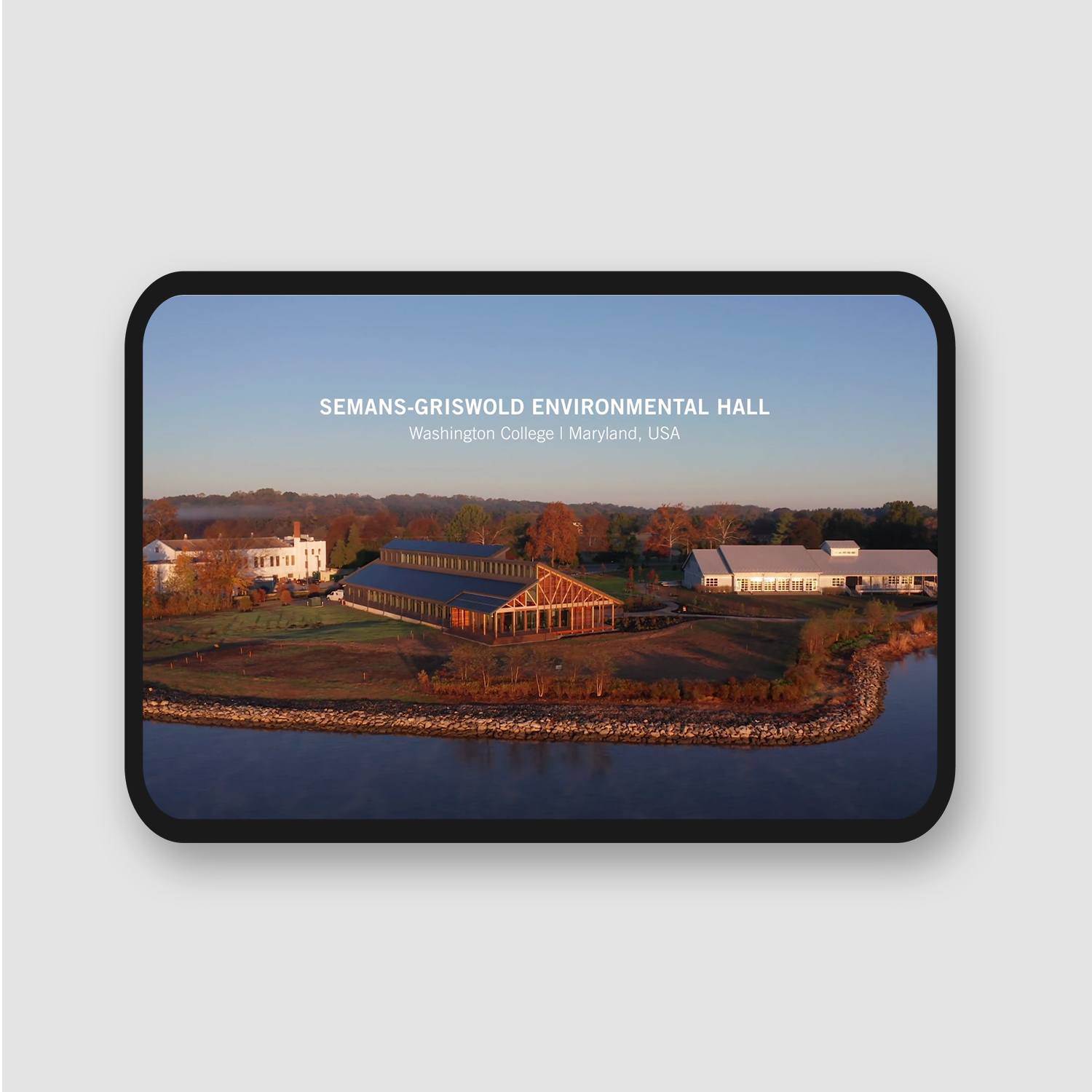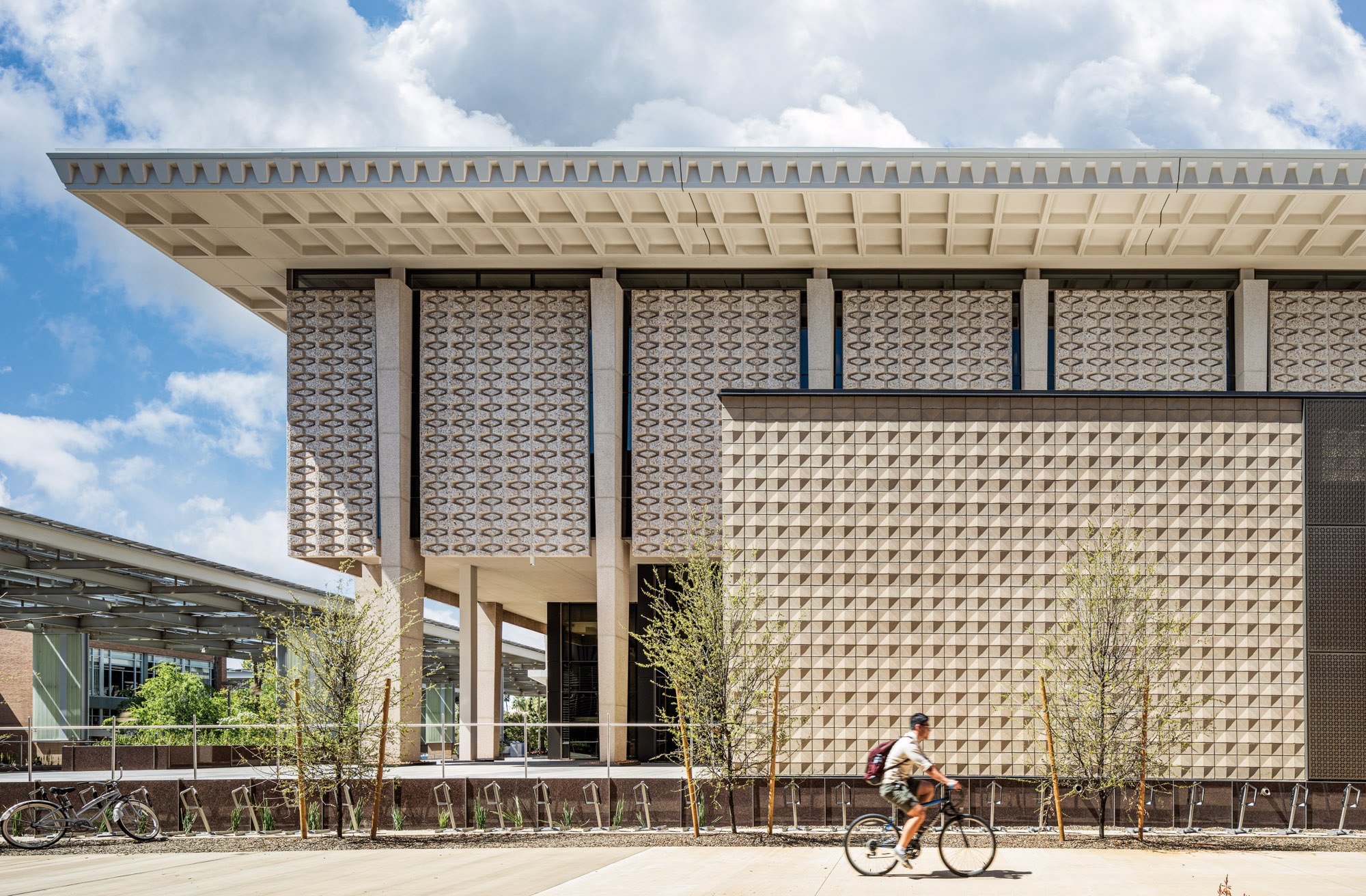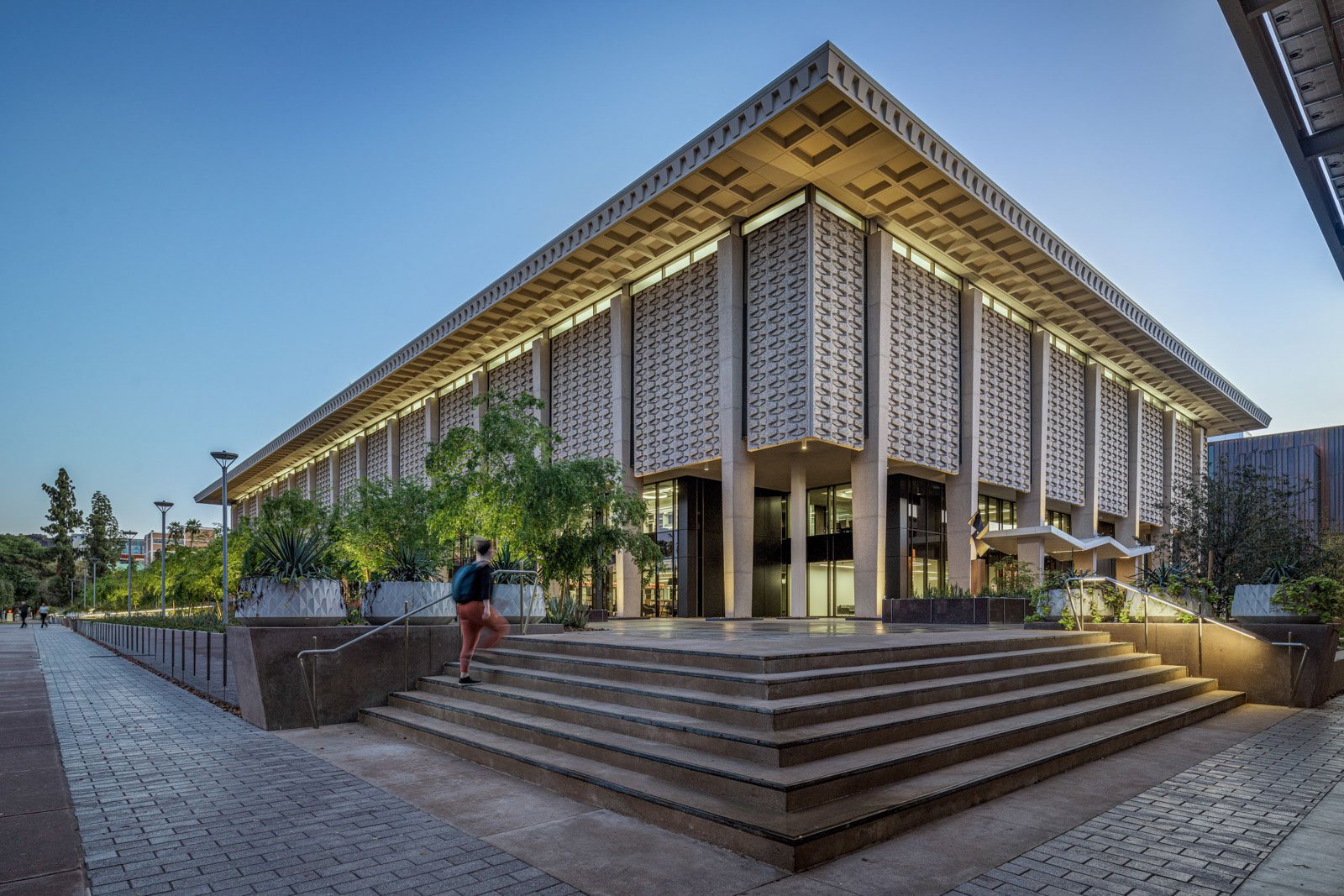For more than two decades, Ayers Saint Gross has published an annual Comparing Campuses poster featuring campuses from colleges and universities around the world. The goal of this research is to share knowledge and to help institutions find common ground while learning from each other. Our hope is that these posters can inspire the creation of better spaces in which to live, learn, and teach.
In recent years, we have looked at campuses from specific, zoomed-in perspectives, diving deep into issues like carbon emission and open space. This year, we wanted to look at campuses more holistically. To do this, we turned to the Framework for Design Excellence, as developed by the American Institute of Architects. The Framework includes searching questions and principles around 10 subject areas, inspiring conversations about how to best design for integration, equitable communities, ecosystems, water, resources, energy, well-being, change, economy, and discovery.
As part of our poster, we included six projects at institutions of varying size, geography, and context to explore integrated design solutions. Each of these projects highlights actionable strategies and how they align with the AIA Framework for Design Excellence.
We believe design should solve problems for everyone and that no single issue can be considered in isolation. There are so many challenges facing the built environment today, including the effects of climate change and systemic inequity. We believe the Framework provides a roadmap for how designers can approach these challenges in an intersectional way to make lasting, positive change.
As we have worked to incorporate the Framework into our firm’s design processes, it has become a catalyst for us to think more collaboratively and rely on the collective wisdom of our diverse teams. These Framework-inspired conversations have deepened our dialogue and clarified our goals in partnership with communities, clients, consultants, and outside contractors. This approach has revealed exciting and often unexpected results in our work and allowed us to be open to new insights and discoveries in the process.
We’re inspired by this cross-section of universities who are tackling big challenges in creative ways. We hope that this research will inspire others to incorporate these principles to inform decision-making throughout the design process. These early conversations help us make the right decisions, at the right time, for the right reasons, toward a zero-carbon, equitable, resilient, and healthy future.
View or download this year’s poster here.
